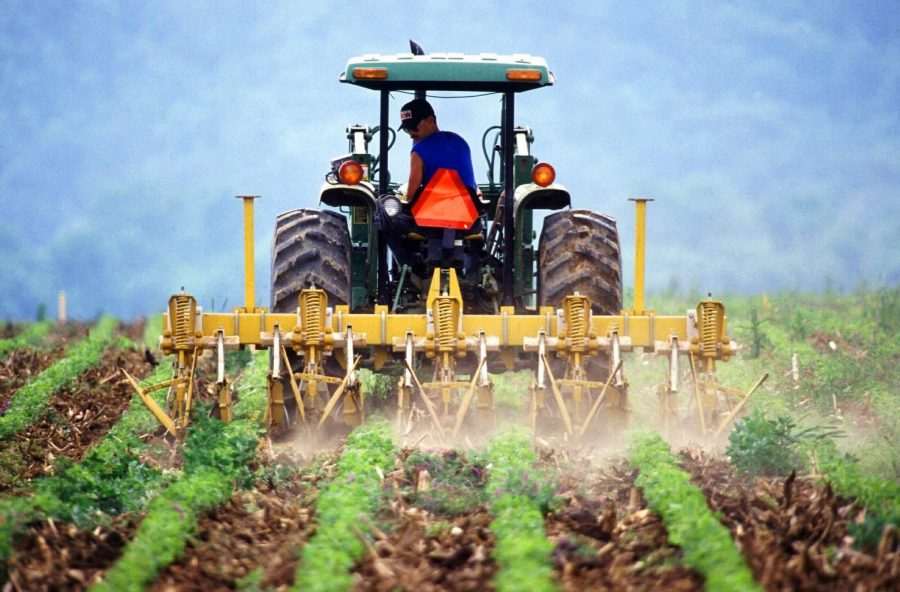Extension director awarded for efforts in soil preservation
Work to control health, acidity, improve crop nutrients led to honor
A WSU Extension agent’s work to help local farmers improve soil quality earned him recognition by the National Association of County Agricultural Agents.
October 31, 2018
A WSU Extension agent received national recognition for his work helping farmers preserve the health of their soil.
Paul Carter, director of Columbia County Extension and an Agriculture and Natural Resources agent, received the 2018 Distinguished Service Award from the National Association of County Agricultural Agents (NACAA).
The award is presented to members who have served at least 10 years in cooperative extension service, conducted outstanding programs, are held in high esteem by their fellow workers and are approved by the state director of extension, according to the NACAA website.
“Being recognized by your peers is a pretty huge honor,” Carter said.
Working out of an office in Dayton, Washington, Carter helps farmers control nutrients in crops to improve soil health and reduce soil acidity.
Carter grew up on a farm in southern Indiana and returned there to farm with his father and brother. He said the farm had acidic soils and between personal experience as well as knowledge he gained in college, he learned treatment methods.
He said his background with soil acidity was helpful when farmers near Dayton were having similar problems.
“Extension agents are considered adult educators, informing the public based on areas of expertise and the needs [of the population],” Carter said.
In 1974, he earned his bachelor’s degree in agriculture mechanization from Purdue University, master’s in agronomy soil science in 1999 and then completed his doctorate’s degree in agronomy remote sensing, he said.
Carter said he went back to college at the age of 45 and got to graduate with his youngest daughter. He joined WSU faculty in 2005.
He said he enjoys interacting with people in the agriculture world and working with youth through the 4-H program.
“I get to work with the farmers and ranchers and help them resolve problems and in the process I learn things as well,” Carter said.









